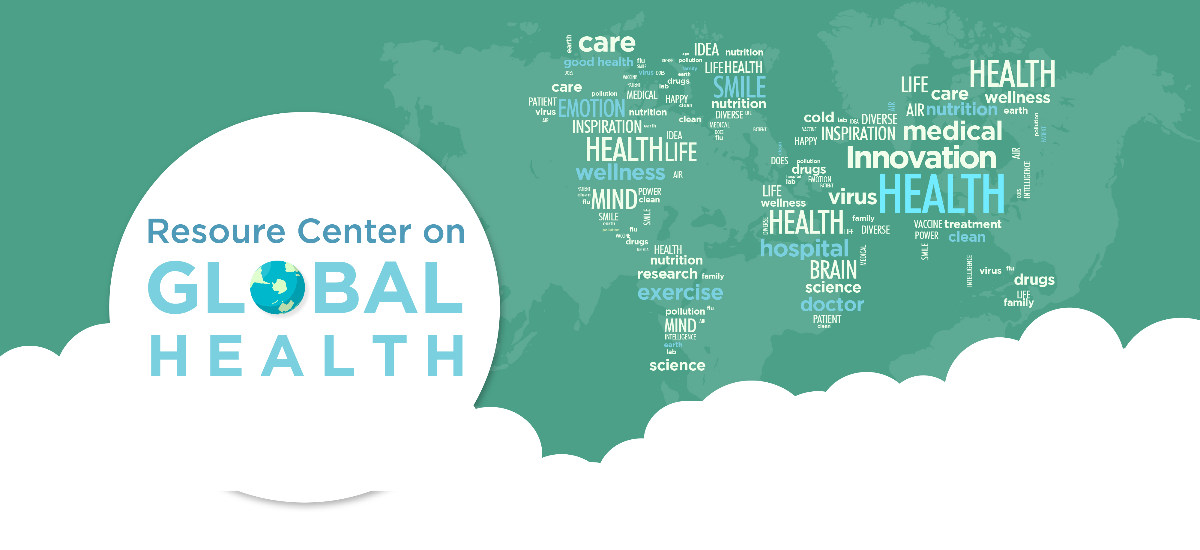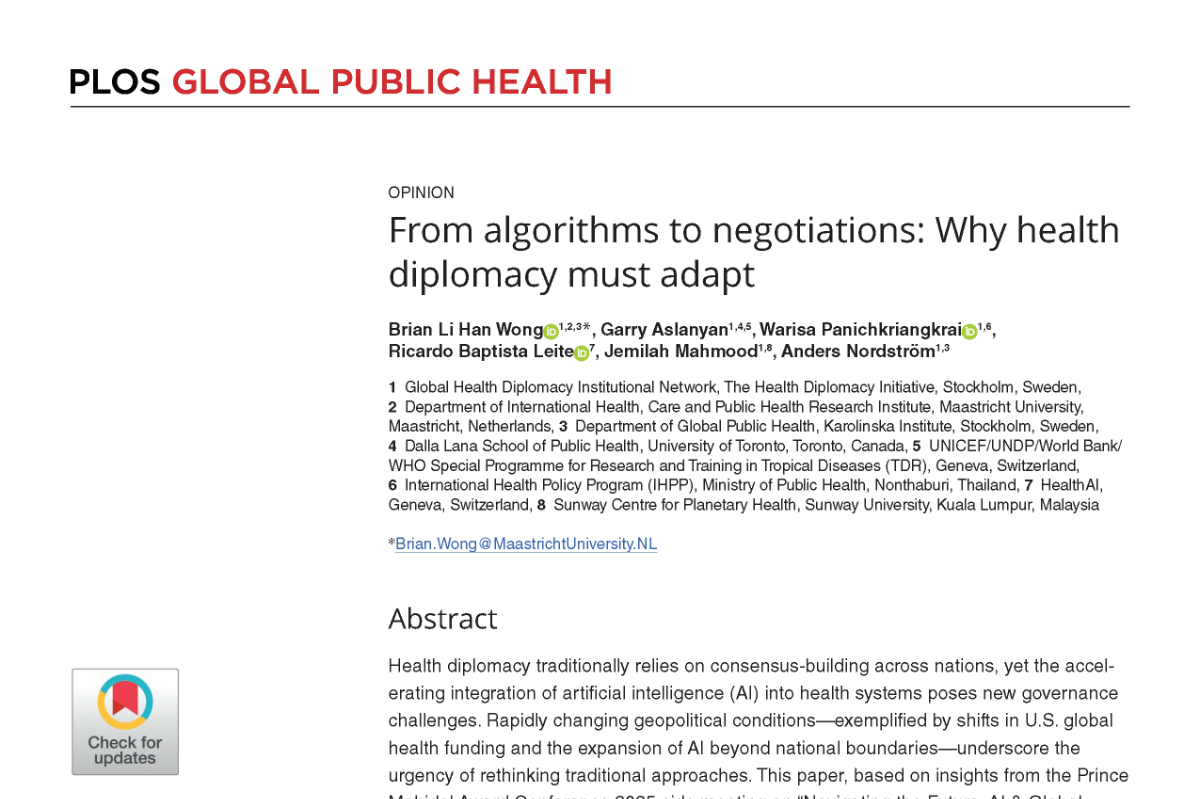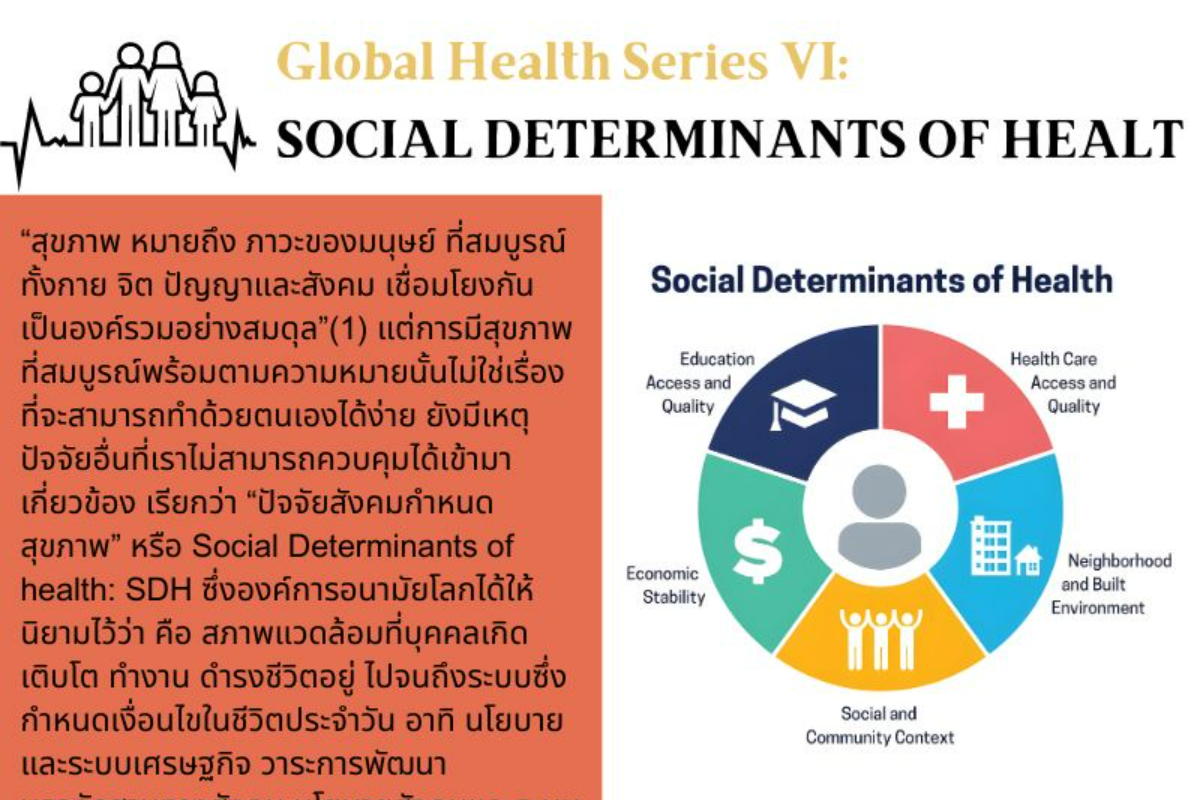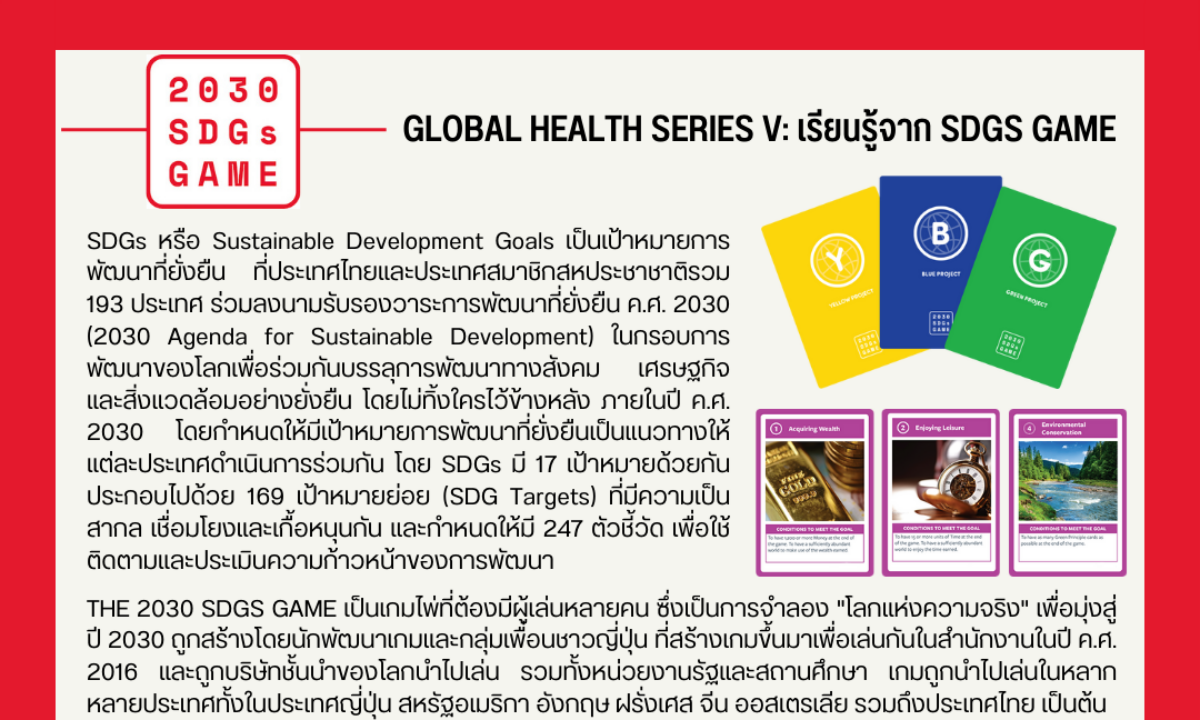
Resource Center on Global Health
Thailand has dedicated their experiences to organizing global health diplomacy workshops and played proactive and leading role in global health arena over the past decades. Moreover, Thailand has advocated important health agendas and contributed to framing and propelling critical global health agendas. While protecting and maintaining national interest, Thailand has built national image and utilized global health as a platform to pave the way for further collaborations and strengthen international relations with other countries.
This Resource Center has been developed from collective contributions of the International Health Policy Program (IHPP), the Country Cooperation Strategy-Global Health Diplomacy (CCS-GHD) and the partnership project for Global Health and Universal Health Coverage (GLO-UHC) and relevant partners.
This Resource Center is an accessible online platform for learning, exchanging and sharing knowledge of global health movements at national and international levels.
This user-friendly online platform will provide you with basic concepts and information on global health in a wide range of media such as reading materials, articles, reports, and media and other relevant documents for those who are interested.
We hope this Resource Center will be useful for public and it will be a long-lasting asset of global health.
Global Health (GH)
Over the past three decades, the advent of globalization has rapidly changed the face of public health, as witnessed by emerging and re-emerging infectious diseases, zoonoses, antimicrobial resistance, non-communicable diseases, occupational and environmental diseases. These public health problems threaten human security and cannot be handled solely by one country. Furthermore, the scope and definition of health can be viewed not only through the limited lens of the health sector, but also through a broader perspective of well-being and social determinants, which allows engagement from non-health sectors.
Global health, of which direct and indirect impacts on health can transcend national boundaries, necessitates pooling experiences and knowledge sharing between developed and developing countries and global political engagement at the intersection of health, diplomacy and global collective action.
The landscape of global health governance has dramatically changed over the past decade as new state and non-state actors establish funding mechanisms and influence priorities. New economic powers have emerged from many countries, many of which were former aid recipient countries. Non-state actors, namely non-governmental organizations (NGOs), public private partnerships, philanthropic foundations, and the private sector, have asserted their roles in shaping global health governance through financial and technical support for developing countries.
As there has been increasing awareness of the contribution of health system development to greater economic development, health has been embedded in one of the United Nations Development Agendas. The direction of global health began with the United Nations Millennium Development Goals (MDGs) in 2000, in which health goals anticipated economic and social development through achieving good population health. After the MDGs era had been concluded in 2015, new goals were developed into the Sustainable Development Goals (SDGs) in the Post-2015 Development Agenda, an important framework for countries around the world to set strategies and plans for their national development. One of the SDGs covers health issues such as promotion of universal health coverage, eradication of communicable diseases including AIDS, tuberculosis, malaria, and neglected tropical diseases, reduction in mortality rate of non-communicable diseases, and promotion of maternal and child health. It is challenging for global community to translate the ambitious SDG targets into real actions, which require high and continuous political commitment, cross-sectoral collaborations and building national capacities. Strong cooperation mechanisms for health at local, national, regional and global levels involving a large number of international organizations for decision making and management in a systematic and effective manner is necessary.
Role of Thailand in Global Health Arena
Over the past three decades, Thailand has developed its management and cooperation systems to more effectively address threats to the health and well-being of the population. Some key achievements include the development of the universal health coverage (UHC) system, access to affordable medicines and the prevention and control of HIV/AIDS through elimination of maternal-to-child transmission.
Thailand has recognized the importance of global health as one of the essential tools to achieve health development and has played a constructive role in public health in the global arena. This includes development and assistance in health for other neighboring countries to prevent disease transmission and natural disaster relief as well as technical support including capacity building for UHC and global health. Over the years Thailand has played a proactive, leading role in global health by setting and advocating important health agendas at the global level. The country’s advocacy has contributed to the framing of critical global health agendas to advance, protect and maintain national interest, build national image and use global health as a tool to pave the way for further collaboration and strengthen international relations. These active roles have been possible through collective contributions from continuous political commitment, strong health systems and national capacity in global health diplomacy.
To sustain and further strengthen global health capacity in Thailand, the Ministry of Public Health and Ministry of Foreign Affairs issued a directive for global health, set by the National Global Health Strategic Framework (2016-2020). The Strategic Framework was endorsed by the 8th National Health Assembly in 2015 and approved by the Cabinet in 2016. This framework aims to ensure health security for Thai people and to provide technical support for health development in other countries, which applies health as one of the foreign policy instruments. Additionally, the Country Cooperation Strategy (CCS) 2017–2021 is a collaboration between the World Health Organization (WHO) and the Royal Thai Government with its partners. The CCS in Thailand represents a strategic, innovative, unique approach to partnership in which more than 60 health-related stakeholders, including the Ministry of Public Health, academic institutions, civil society organizations, and government autonomous health agencies, have come together to address a number of clear evidence-based priorities. Global Health Diplomacy is among the six priority areas of CCS. The goal of this program is to generate knowledge and strategic information, empower global health partners at all levels to support the implementation of Thailand’s Global Health Strategic Framework (2016-2020), and establish monitoring and evaluation including other platforms where necessary.



